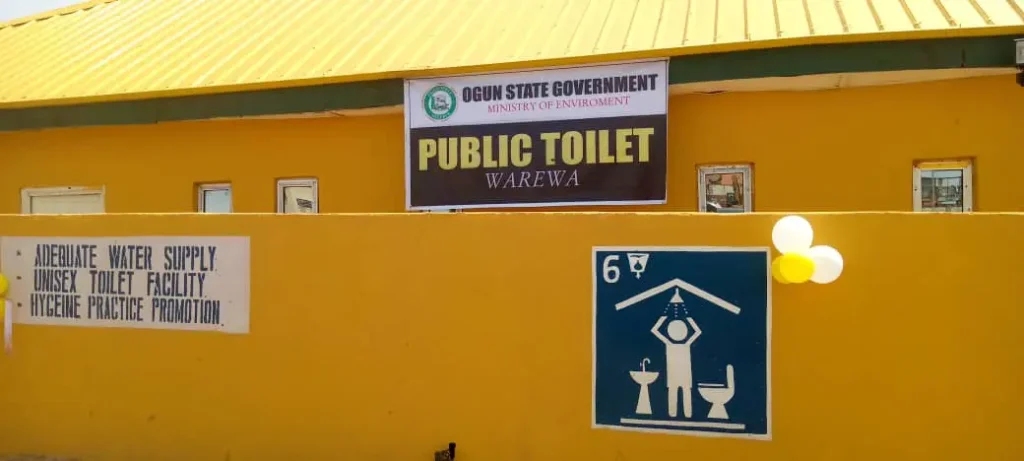CurrentReport Blog In a landmark move to promote environmental health and hygiene, the Ogun State Government has officially criminalised open defecation and urination. This initiative was announced on November 19 in commemoration of World Toilet Day, celebrated annually to raise awareness about sanitation issues globally.
The theme for this year, ‘Toilets – A Place for Peace,’ underscores the importance of sustainable sanitation systems for healthy and stable communities.
Commissioner for Environment, Ola Oresanya, disclosed this development during the commissioning of four new public toilets equipped with bio-digesters. These facilities, located in key border areas along the Lagos-Ibadan Expressway—Berger, Isheri, Warewa, and Magboro—bring the total number of public toilets in the state to 80, reinforcing the government’s commitment to eliminating open defecation.
Tackling Nigeria’s Sanitation Crisis
This effort comes in response to the United Nations Children’s Fund (UNICEF) report that Nigeria has over 46 million people practising open defecation, making it one of the nations with the highest prevalence globally.
The Ogun State initiative aligns with Nigeria’s nationwide campaign, launched in 2019, to end open defecation by 2025 and achieve Sustainable Development Goal (SDG) 6, which focuses on clean water, sanitation, and hygiene for all.
Strict Enforcement and Benefits
Oresanya emphasized that criminalising open defecation is the first step in enforcing rigorous penalties for offenders. This, coupled with the provision of public facilities, aims to enhance the aesthetic beauty of Ogun State, promote public health, and ensure sustainable development.
He stated, “This is a significant step towards making Ogun State open-defecation-free. The enforcement of this law, combined with accessible public toilets, will foster a cleaner and healthier environment for all residents.”
The newly commissioned facilities are expected to serve border communities and encourage proper sanitation practices. Residents have been urged to embrace the change and support the state’s drive towards a cleaner, healthier society.












